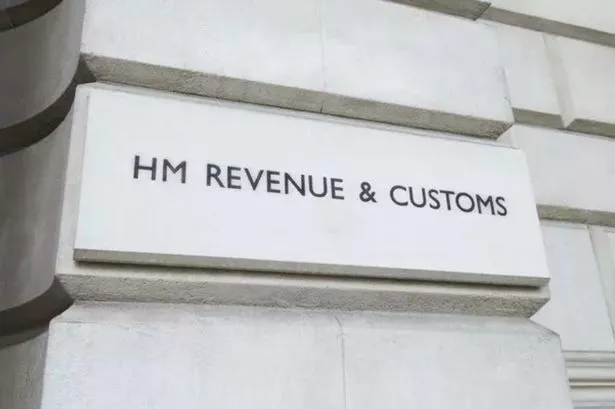Niger Retreat: ECOWAS Charts Economic Development Priorities

Table of Contents
Addressing Immediate Economic Challenges in Niger
The political upheaval in Niger has triggered immediate economic consequences that demand urgent attention. The sanctions imposed following the coup have significantly impacted various sectors, creating a pressing need for swift and effective interventions.
-
Impact on Trade and Investment: The sanctions have disrupted trade flows, affecting both imports and exports. Foreign investment has understandably slowed, hindering economic activity and job creation. This necessitates a strategic plan for trade diversification and attracting alternative investment sources.
-
Food Security Concerns and Humanitarian Needs: The instability has exacerbated existing food insecurity issues, increasing the vulnerability of the population. Humanitarian aid is crucial to address immediate needs and prevent a wider crisis. ECOWAS must prioritize the distribution of essential food supplies and support local agricultural production.
-
Challenges to the Financial Sector and Access to Credit: The political uncertainty has shaken confidence in the Nigerien financial system, limiting access to credit for businesses and individuals. Restoring stability and investor confidence is paramount to revitalizing the financial sector. This requires transparent financial policies and international support.
-
Potential for Rising Inflation and Unemployment: The economic disruptions are likely to fuel inflation and increase unemployment rates, particularly among vulnerable populations. Targeted social safety nets and job creation programs are necessary to mitigate these risks.
ECOWAS's proposed solutions focus on providing emergency humanitarian assistance, facilitating dialogue with stakeholders, and establishing mechanisms to stabilize the financial sector and restore investor confidence. These short-term measures aim to pave the way for long-term sustainable development.
Long-Term Economic Development Strategies for Niger
The ECOWAS retreat also laid out a comprehensive long-term vision for Niger's economic growth, transcending the immediate challenges. The strategy centers on sustainable development, diversification, and regional integration.
-
Investment in Infrastructure: Investing in crucial infrastructure, including roads, energy, and communication networks, is key to unlocking Niger's economic potential. Improved infrastructure facilitates trade, attracts investment, and improves the quality of life.
-
Support for Diversification of the Nigerien Economy: Over-reliance on uranium extraction necessitates diversifying the economy into other sectors such as agriculture, renewable energy, and tourism. This will enhance resilience and reduce vulnerability to price fluctuations in the global market.
-
Promoting Sustainable Agriculture and Rural Development: Investing in sustainable agricultural practices and supporting rural development is crucial to improving food security and creating employment opportunities in rural areas. This requires access to credit, improved farming techniques, and better market access.
-
Investment in Education and Human Capital Development: Investing in education and skills development is paramount to building a skilled workforce capable of driving economic growth. This includes investments in primary, secondary, and tertiary education, as well as vocational training programs.
-
Strengthening Governance and Institutional Capacity: Good governance, transparency, and strong institutions are essential for attracting investment and fostering sustainable development. ECOWAS will support reforms aimed at enhancing governance and accountability.
International partners and development agencies will play a pivotal role in supporting these long-term strategies through financial and technical assistance.
Regional Economic Integration and Cooperation within ECOWAS
Niger's economic development is inextricably linked to the broader ECOWAS agenda for regional integration and cooperation. The retreat underscored the need for stronger regional ties to foster collective prosperity.
-
Promoting Free Movement of Goods, Services, and People: Reducing trade barriers and facilitating the free movement of goods, services, and people within the ECOWAS region is crucial for boosting economic activity. This includes harmonizing regulations and streamlining border procedures.
-
Harmonizing Trade Policies and Regulations: A unified approach to trade policies and regulations will make the region more attractive to investors and create a more competitive market.
-
Strengthening Regional Value Chains: Promoting regional value chains will enhance intra-regional trade and create more employment opportunities. This requires collaboration across various sectors to develop integrated production processes.
-
Joint Infrastructure Projects: Jointly funded and managed infrastructure projects, such as energy grids and transportation networks, will facilitate economic integration and enhance connectivity within the region.
-
Sharing of Resources and Expertise: Sharing resources and expertise among ECOWAS member states will foster mutual learning and enhance capacity-building efforts.
Funding Mechanisms and Resource Mobilization for Niger's Development
Securing adequate funding is crucial for the successful implementation of ECOWAS's economic development initiatives in Niger. The plan involves a multi-faceted approach to resource mobilization:
-
Contributions from ECOWAS Member States: Member states will contribute financially to support the economic recovery and development efforts in Niger.
-
International Development Aid and Loans: Securing concessional loans and grants from international development partners such as the World Bank, IMF, and other development agencies will be crucial.
-
Private Sector Investment: Attracting private sector investment will be paramount to ensuring the long-term sustainability of the development initiatives. This necessitates creating a favorable investment climate and reducing investment risks.
-
Potential for Public-Private Partnerships: Public-private partnerships (PPPs) offer a promising avenue for leveraging private sector expertise and capital while sharing risks and rewards.
The effectiveness and sustainability of these funding mechanisms will depend on careful planning, transparent management, and strong accountability measures.
Conclusion: The Future of Economic Development in Niger Following the ECOWAS Retreat
The "Niger Retreat" has identified crucial economic development priorities, emphasizing both immediate relief and long-term strategic planning. ECOWAS’s commitment to supporting Niger’s economic recovery and fostering sustainable growth is paramount for the stability of the region. While challenges remain, particularly regarding the political climate and resource mobilization, the collaborative spirit and the comprehensive plan emerging from the retreat offer a beacon of hope. Continued collaboration among ECOWAS member states, international partners, and the private sector is vital for the success of these initiatives. Stay informed about the progress of the ECOWAS economic development plan for Niger by following [link to relevant resources].

Featured Posts
-
 Hmrc Child Benefit Key Messages And What To Watch Out For
May 20, 2025
Hmrc Child Benefit Key Messages And What To Watch Out For
May 20, 2025 -
 Uk Households Urgent Action Needed On New Hmrc Letters
May 20, 2025
Uk Households Urgent Action Needed On New Hmrc Letters
May 20, 2025 -
 Ia Et Ecriture Une Agatha Christie Virtuelle Revolution Ou Imitation
May 20, 2025
Ia Et Ecriture Une Agatha Christie Virtuelle Revolution Ou Imitation
May 20, 2025 -
 Fenerbahce De Yeni Bir Doenem Dusan Tadic In Tarihi Transferi
May 20, 2025
Fenerbahce De Yeni Bir Doenem Dusan Tadic In Tarihi Transferi
May 20, 2025 -
 Ajax Fenerbahce Yildizini Transfer Etti Mourinho Nun Onayi
May 20, 2025
Ajax Fenerbahce Yildizini Transfer Etti Mourinho Nun Onayi
May 20, 2025
Latest Posts
-
 Canadas Response To Oxford Report Us Tariffs Largely Unchanged
May 20, 2025
Canadas Response To Oxford Report Us Tariffs Largely Unchanged
May 20, 2025 -
 Amazon Faces Union Challenge Following Quebec Warehouse Closure
May 20, 2025
Amazon Faces Union Challenge Following Quebec Warehouse Closure
May 20, 2025 -
 Quebec Labour Tribunal To Hear Case On Amazon Warehouse Closings And Unionization
May 20, 2025
Quebec Labour Tribunal To Hear Case On Amazon Warehouse Closings And Unionization
May 20, 2025 -
 Canada Rejects Oxford Report Most Us Tariffs Remain
May 20, 2025
Canada Rejects Oxford Report Most Us Tariffs Remain
May 20, 2025 -
 Canada Post Financial Troubles Report Advocates For The End Of Home Mail Delivery
May 20, 2025
Canada Post Financial Troubles Report Advocates For The End Of Home Mail Delivery
May 20, 2025
